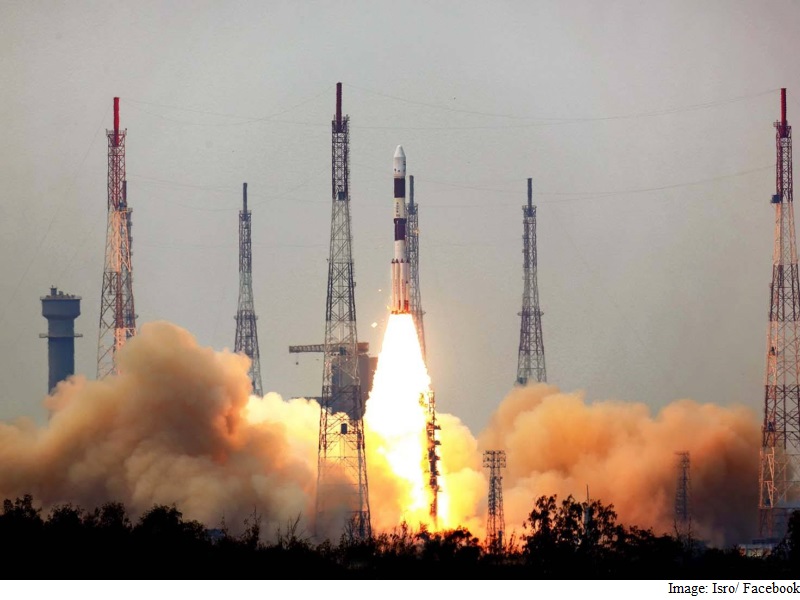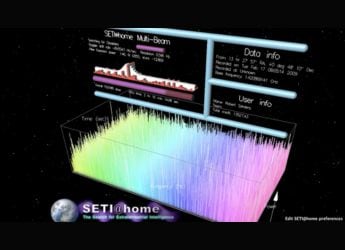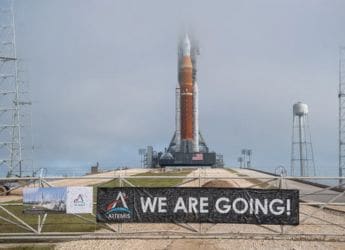- Home
- Science
- Science News
- Isro Looks to Domestic Industry to Build Launch Vehicles in 3 4 Years
Isro Looks to Domestic Industry to Build Launch Vehicles in 3-4 Years

"About three to four years down the line, our target is to see industry-built, assembled and launched PSLV," Isro Chairman A S Kiran Kumar said.
Addressing the media after successful launch of Astrosat, the country's first observatory satellite, and six foreign satellites onboard PSLV-C30 from here, he pointed out to the participation of about 150 companies in the Polar Satellite Launch Vehicle programme.
Responding to a query on the Saarc satellite proposed by Prime Minister Narendra Modi for the member countries, Kumar said Sri Lanka had given its acceptance on frequency while the space agency was awaiting the same from others.
Plans were afoot to launch the satellite by end of 2016, with both exclusive transponders and shared ones to be allotted to the members of the South Asian Association of Regional Cooperation (Saarc).
Isro's projects in the coming months include a commercial launch carrying six Singapore satellites, a couple of navigational satellites and GSAT-15, Kumar said.
When asked about today's launch of four satellites from the US, which had in the past imposed sanctions on the country, he said the "world doesn't remain stagnant".
The Indo-US relationship was growing even as the two were involved in the NISAR satellite programme, he said, adding Chandrayaan-I had US payloads.
Countries were also collaborating in space programme due to financial constraints, he said.
Asked about invitation to Isro to be part of International Space Station, he said no decision has been taken so far.
With launches like Mars Orbiter Mission and Astrosat, Isro has managed to reach out to institutions and youth, he said.
Asked whether today's launch was the Indian equivalent of the Hubble telescope of the US as reported in a section of the media, Kumar said, "I do not think it is correct" to say so.
Astrosat Project Director K S Sarma said Astrosat cannot be compared with Hubble as it belongs to a different class with huge lens.
"We have different kind of features," he said. Post the successful injection of Astrosat into the orbit, he said, it was "healthy and doing well".
"This satellite is very unique as we have sophisticated and sensitive astronomical equipment," he said.
Sarma and other scientists involved in the project said that stringent environment and cleanliness standards were followed to ensure there was no contamination to the x-ray or the telescope.
Kumar expressed satisfaction that with the launch of Astrosat, Indian institutions were increasing their contribution to the space programme.In fact many students have been using data sent by Chandrayaan-I for PhD thesis,he said.
Officials said that data being sent by Astrosat for one year would be accessed by Isro officials and then would be made public for those registered with the organisation.
Catch the latest from the Consumer Electronics Show on Gadgets 360, at our CES 2026 hub.
Related Stories
- Samsung Galaxy Unpacked 2025
- ChatGPT
- Redmi Note 14 Pro+
- iPhone 16
- Apple Vision Pro
- Oneplus 12
- OnePlus Nord CE 3 Lite 5G
- iPhone 13
- Xiaomi 14 Pro
- Oppo Find N3
- Tecno Spark Go (2023)
- Realme V30
- Best Phones Under 25000
- Samsung Galaxy S24 Series
- Cryptocurrency
- iQoo 12
- Samsung Galaxy S24 Ultra
- Giottus
- Samsung Galaxy Z Flip 5
- Apple 'Scary Fast'
- Housefull 5
- GoPro Hero 12 Black Review
- Invincible Season 2
- JioGlass
- HD Ready TV
- Laptop Under 50000
- Smartwatch Under 10000
- Latest Mobile Phones
- Compare Phones
- Tecno Spark Go 3
- iQOO Z11 Turbo
- OPPO A6c
- Samsung Galaxy A07 5G
- Vivo Y500i
- OnePlus Turbo 6V
- OnePlus Turbo 6
- Itel Zeno 20 Max
- Lenovo Yoga Slim 7x (2025)
- Lenovo Yoga Slim 7a
- Lenovo Idea Tab Plus
- Realme Pad 3
- Garmin Quatix 8 Pro
- NoiseFit Pro 6R
- Haier H5E Series
- Acerpure Nitro Z Series 100-inch QLED TV
- Asus ROG Ally
- Nintendo Switch Lite
- Haier 1.6 Ton 5 Star Inverter Split AC (HSU19G-MZAID5BN-INV)
- Haier 1.6 Ton 5 Star Inverter Split AC (HSU19G-MZAIM5BN-INV)

















